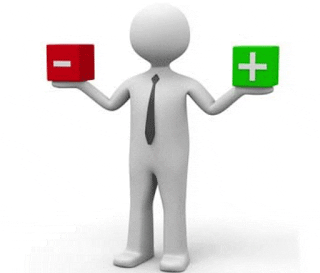Knowing the disadvantages of a consumer proposal is key to making an informed decision and maximizing the benefits of this debt relief strategy.
Downsides of a Consumer Proposal
Are there disadvantages to a consumer proposal? Yes, there are some important considerations. Before you decide if a consumer proposal is right for you, it’s essential to understand the potential drawbacks:
- Credit Score Impact: How does a consumer proposal affect my credit score? While it will likely lower your score initially, remember that if you’re already struggling with debt, your credit may already be affected. A successfully completed proposal can be a fresh start and a path to rebuilding your credit over time.
- Consumer Proposal Cancellation: Can a consumer proposal be cancelled? Yes, but staying on track with your agreed-upon payments is key. Missing three months of payments can lead to annulment. However, proactive communication with your Licensed Insolvency Trustee if you anticipate difficulties can often help you avoid this.
- Secured Debt and Consumer Proposals: What about secured debts? They are typically excluded unless you surrender the asset. This means secured debts, like car loans, need to be addressed separately. However, this can also be an opportunity to reassess your secured debt obligations and potentially find more manageable solutions.
Despite these considerations, a consumer proposal can be a powerful tool for managing overwhelming debt and providing a structured repayment plan.
The Disadvantages of a Consumer Proposal
Understanding the disadvantages of a consumer proposal is key to confidently navigating this debt relief option and making the most of its benefits.
A consumer proposal is a legal process in Canada that helps people who can’t repay their debts reach an agreement with their creditors. It can be a valuable tool for those struggling financially, but it’s important to understand both the pros and cons.
Considering a consumer proposal? Get your questions answered. Call YanchDey at 905-721-7506 today and learn how much you can save.

Benefits of a Consumer Proposal
Where you have debt issues the benefits of filing a consumer proposal far outweigh any disadvantages.
A consumer proposal offers a structured and legal way to manage your debt, often reducing it by up to 70%. It’s important to weigh all aspects, including the many positive benefits, when considering this option. Here’s how a consumer proposal can help:
- Debt Reduction: Significantly reduce your overall unsecured debt load, often by up to 70%, making your debt more manageable.
- Legal Protection: Lawsuits and legal actions from creditors, including wage garnishments, are immediately stopped, providing you with legal protection.
- Interest Rate Freeze: No further interest or penalties added to the debts, preventing your debt from growing.
- Asset Preservation: You retain possession of your property, such as your home and car (secured debts are handled differently and may require you to reaffirm or surrender the asset), allowing you to maintain stability.
- Collection Calls End: Harassing calls from creditors cease are legally stopped. Creditors are prohibited from calling you.
- Clear Path to Debt Freedom: You’ll typically be out of debt and have a fresh financial start within 3-5 years, providing a clear fresh start.
- Affordable Setup: There are no costs to set up a consumer proposal, the fees are taken from the funds sent to the creditors.
- Easy Payments: You make a single, manageable monthly payment to the proposal administrator, that you can afford.
For individuals struggling with overwhelming debt, the benefits of a consumer proposal can offer a pathway to financial stability and a brighter future. It’s crucial to consider all factors, both advantages and any potential drawbacks, to make an informed decision.
★★★★★ I owed 42,000 in credit card debt and knew there was no way I would ever be able to pay it back. When I was told my paycheque was going to be garnished, I knew that I had to do something. I contacted Yanchdey, they were friendly and not judgmental and explained my options, we filed the consumer proposal and my debt went down to about 12,000, which I’ll have paid off in 4 years ($250/month), Dave S. Whitby
Credit Ratings
A consumer proposal will affect your credit rating. This is something many people worry about, so let’s break it down:
- Your Score Will Go Down: But once the proposal is started, it can only go up, and will improve.
- It’s Not Forever: This change is temporary. It usually stays on your report for only three years after you finish the proposal.
- You Can Rebuild: A finished consumer proposal can be a fresh start. It gives you a chance to show you can manage your money well and build your credit back up.
Want to know how a consumer proposal could affect your credit? Call YanchDey at 905-721-7506 for a free, no-pressure chat. We can explain everything clearly.
Get Out of Debt Today!
Financial freedom starts with just one call.
Let us guide you towards a brighter future, free from the burden of debt.
Disadvantages: Missing Payments
If you stop making or miss payments the proposal will be cancelled, the legal term is Annulled.
Where the debtor misses the equivalent of three (3) months payments the proposal will be automatically annulled.
Once there has been an annulment, the proposal is cancelled and:
- all debts are reinstated
- all interest and fees are reinstated
- the proposal cannot be reactivated without permission from the court
Consumer proposals can only be revived/reactivated within a very short time frame, if the creditors agree or with permission from the court.
In most cases where the debtor is unable to make payments the recourse left is to file for bankruptcy.
Unsecured Debt & Consumer Proposals
Unsecured credit is credit or loans that you receive where there is nothing to back it up or no security provided for the credit.
Examples of unsecured credit include;
- credit cards, company credit card cards and gas cards
- utility bills like electrical, water or gas bills
- cell phone or telephone bills
- personal loans, rent and medical bills
- student loans
Secured debt is secured by a tangible piece of property that can be seized if the debt is not paid. For example if you stop making payments on your car or home, then the loan or mortgage holder would come and seize the property.
Read more about Secured and Unsecured Debt >>




Comments are closed.